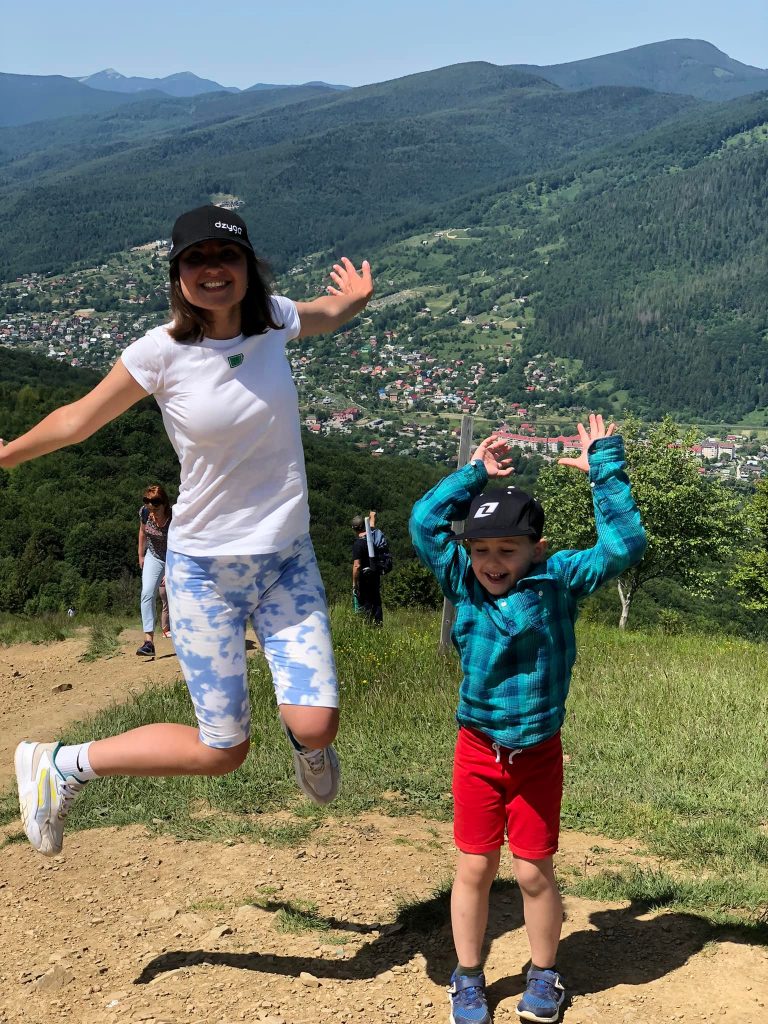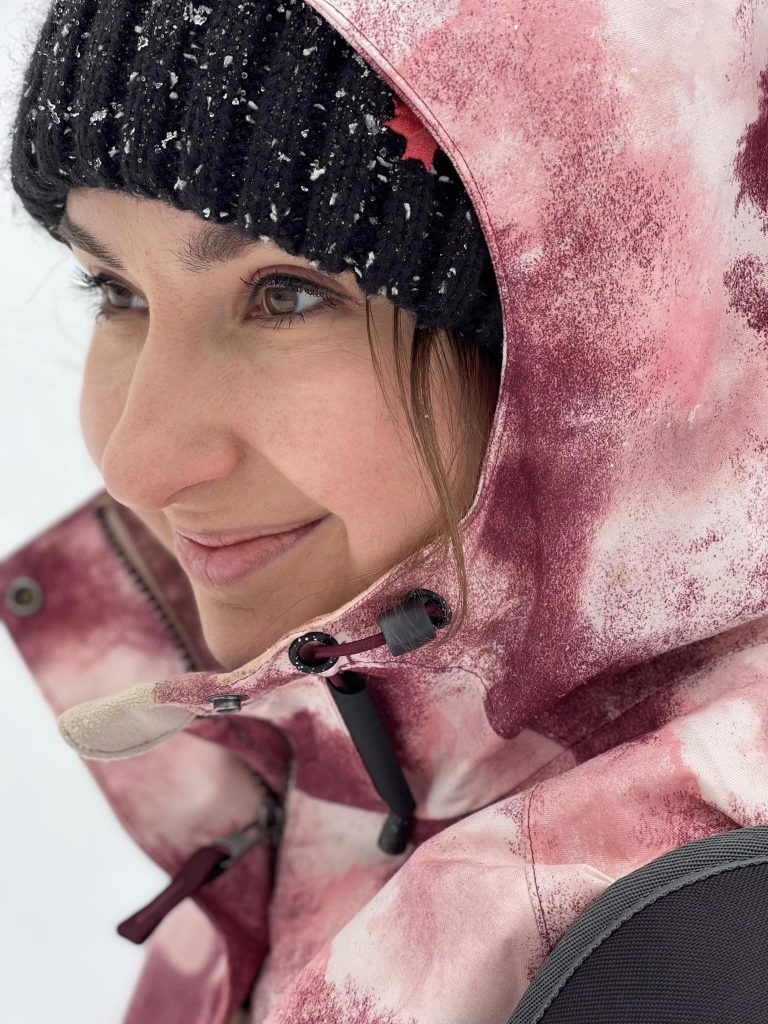A Day of Mixed Emotions
On the morning of February 24th, Yulia’s day was much like that of most media professionals – hundreds of messages in messengers, calls to family and close ones. All conversations revolved around one topic – a large-scale war had reached Ukraine. However, Yulia had different concerns – her son was poisoned. They urgently had to find a hospital. In an unfamiliar area, in the Carpathian Mountains where the family had gone for a vacation just before the war, this was a challenge.
— My son was seriously poisoned, so we were genuinely scared. We went to Yaremche for the hospital. They told us that there was no suitable hospital in Yaremche, and that we needed to go to Nadvirna. So, we ended up in Nadvirna. We were immediately admitted to the hospital. It was a mix of emotions: the war, everyone calling, colleagues trying to leave Kyiv, and here we were in an unfamiliar city because our child was on a drip. And my son’s condition was critical,— Yulia began her story.
Medical professionals helped Yulia find accommodation since they had run out of money to stay at a hotel.
— We were at the hospital, and the doctors, and nurses started looking for a place to stay for us. Perhaps because the war had just started, they managed to find us accommodation; later, it would have been quite a challenge. Completely unknown people sheltered us, and welcomed us into their apartment,— the journalist said.

Remote Work and Cutbacks
Despite the chaos, Yulia’s editorial team continued working, as they needed to complete ongoing projects.
— Our holding, Starlight Media, cared about its employees. They paid us in advance – for February and March – to ensure that employees wouldn’t be left without money, to help them provide for their families. We finished projects that were filmed before February 24th. This included TV series production. We had three to four series. One of them was ‘Hot Cop’: we hadn’t finished shooting six days, but all the other episodes were ready, and we were in the editing phase. This work could be done remotely. Colleagues scattered throughout Ukraine and abroad,— our interviewee explained.
Then came a time of uncertainty regarding the future. Cutbacks started happening within the holding, with the most significant reductions occurring in the summer. Yulia registered with the local employment center.
— In Nadvirna, I created a cozy community where I interact with like-minded people, all of us are IDPs [Internal Displaced Persons]. They’re interesting people. We support each other; we share similar problems. There are proper conditions for the child in the place where the war reached us: kindergarten and clubs. Both adults and children should feel that life goes on and we need to move forward. Together with the IDPs, we go to the employment center since September. When we have free time, we weave nets for our defenders,— Yulia narrated. — This is how we bring victory closer. When we make these nets, we communicate, support each other, and try to invest not just time but also hopes for victory, the best wishes for the soldiers, and our warm regard for the defenders.

Change in Life Values
Far from home and amidst war, Yulia, like millions of Ukrainians, has seen a change in life values.
— When the war started, there was one simple desire: to have family close by, everything else became secondary. Everything left in Kyiv, what we earned, what we bought, became unimportant. It turned out that security – for oneself and loved ones – was the top priority. These are simple things, but they became so apparent and showed that they are the most important in life, while material possessions are fleeting,— the journalist confessed.
This series, titled Executed Free Speech, is created as part of a project Drawing Ukrainian And International Audience’s Attention To Serious Violations Of Human Rights And Crimes Against Journalists And Mass Media By The Russian Federation, which is performed by the National Union of Journalists of Ukraine, with support from the Swedish non-profit organization Civil Rights Defenders.
JOURNALISTS ARE IMPORTANT. Stories of Life and Work in Conditions of War is a cycle of materials prepared by the team of the NUJU with the support of the Swedish human rights organization Civil Rights Defenders.
#CRD

 THE NATIONAL UNION OF
JOURNALISTS OF UKRAINE
THE NATIONAL UNION OF
JOURNALISTS OF UKRAINE
















Discussion about this post